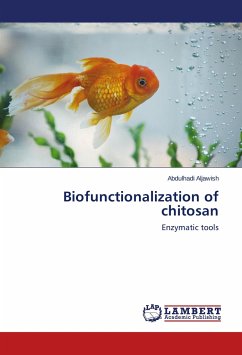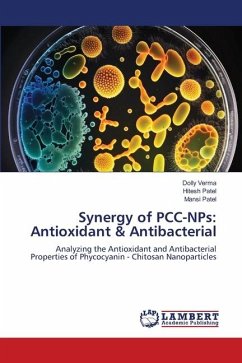Chitosan (aminopolysaccharide) is a natural polymer. Thanks to excellent functional properties, it was found to be a good natural source in various applications such as biomedical, agricultural, functional food, wastewater purification and environmental protection. However, practical use of chitosan was generally limited due to its weak solubility in neutral pH, its poor workability and low antioxidant activity. For a breakthrough in utilization, the functionalization of chitosan will be a suitable solution. Enzymatic or chemical functionalizations of chitosan were carried out based on its reactive groups (-NH2 and -OH). Due to growing safety and environmental concerns, enzymatic methods were investigated as an attractive alternative to toxic and non-specific chemical approaches. This work discusses the mechanisms and the methods of enzymatic functionalization of chitosan.
Bitte wählen Sie Ihr Anliegen aus.
Rechnungen
Retourenschein anfordern
Bestellstatus
Storno








